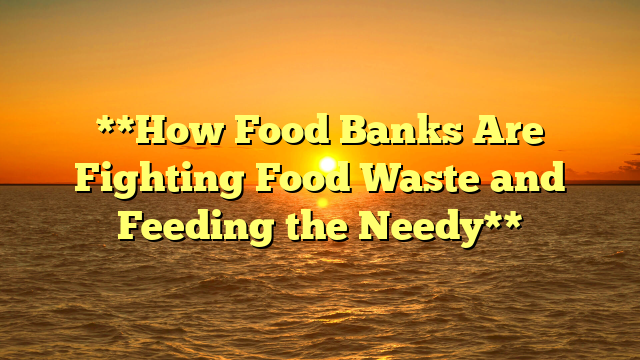
Food banks have emerged as a powerful solution to two of the world’s most pressing challenges: food waste and hunger. Every year, billions of tons of food are wasted globally, while millions of people struggle with food insecurity. Food banks bridge this gap by rescuing surplus food that would otherwise be discarded and distributing it to those in need. In doing so, they not only reduce waste but also provide vital support to vulnerable communities, demonstrating how compassion and innovation can address systemic issues.
At their core, food banks operate on a simple yet impactful principle: redirecting edible food from where it is surplus to where it is needed. angsa4d , restaurants, farms, and food manufacturers often have excess food due to overproduction, cosmetic imperfections, or approaching expiration dates. Instead of letting this food go to waste, food banks collect it and distribute it to individuals and families facing hunger. This process not only prevents food from ending up in landfills but also ensures that it serves its primary purpose—nourishing people.
One of the key ways food banks combat food waste is by partnering with businesses across the food supply chain. For example, grocery stores donate items that are nearing their sell-by dates but are still safe to eat. Farmers contribute produce that may be misshapen or surplus due to market fluctuations. Food manufacturers provide excess inventory or products with minor packaging defects. By collaborating with these stakeholders, food banks create a win-win situation: businesses reduce waste and fulfill their social responsibility, while food banks gain the resources needed to fight hunger.
Technology plays a crucial role in enhancing the efficiency of food banks. Many organizations use software to track donations, manage inventory, and coordinate distribution. Apps and online platforms connect food donors with local food banks, making it easier to match surplus food with communities in need. Some food banks even use data analytics to predict demand and optimize their operations, ensuring that food reaches those who need it most in a timely manner.
In addition to rescuing surplus food, food banks often address the root causes of hunger by providing additional services. Many offer nutrition education programs, teaching recipients how to prepare healthy meals on a budget. Others partner with schools to provide breakfasts or snacks for children, ensuring that young people have the energy they need to learn and grow. Some food banks also advocate for policy changes to address food insecurity, such as expanding access to social safety nets or supporting sustainable agriculture.
The environmental impact of food banks cannot be overstated. By diverting food from landfills, they help reduce greenhouse gas emissions, particularly methane, which is produced when organic waste decomposes anaerobically. This contributes to climate change mitigation and promotes a more sustainable food system. Furthermore, food banks often prioritize the redistribution of perishable items like fruits, vegetables, and dairy products, which are among the most commonly wasted foods. This not only reduces waste but also ensures that recipients have access to fresh, nutritious options.
Volunteers are the backbone of food banks, providing the manpower needed to sort, package, and distribute food. Their dedication and hard work enable food banks to operate efficiently and reach more people. Volunteering at a food bank is also a way for individuals to make a tangible difference in their communities, fostering a sense of connection and shared purpose.
In conclusion, food banks are a vital link in the fight against food waste and hunger. By rescuing surplus food and distributing it to those in need, they address two critical issues simultaneously. Their work not only alleviates immediate hunger but also promotes sustainability and community resilience. As the global population continues to grow, the role of food banks will become increasingly important. Supporting these organizations—whether through donations, volunteering, or advocacy—is a powerful way to create a more equitable and sustainable world. Together, we can ensure that no one goes hungry while perfectly good food goes to waste.




